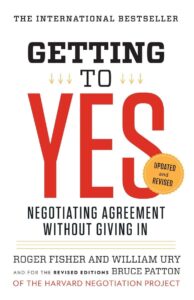Begin your journey toward inner peace and mastering your emotions.
“The most dangerous person is not the one who shouts, but the one who remains calm.”
— Miyamoto Musashi
In a world that keeps accelerating—where every word can sting and emotions surge like waves—the ability to stay calm is more than just a skill.
It’s a quiet power that no one can take away from you.
Over 400 years ago, legendary samurai Miyamoto Musashi, author of The Book of Five Rings, revealed a timeless strategy:
Victory doesn’t go to the one who attacks, but to the one who never loses control.
🔑 Keywords:
emotional control, Miyamoto Musashi, emotional mastery, mental resilience, samurai philosophy, power of calm, inner strength, how to stay calm, Book of Five Rings, equanimity
🧠 Why Emotional Control Is the Superpower of the Modern Age
Today’s battles rarely happen on battlefields.
They take place in meetings, conversations, comment sections—and even within our own minds.
And in these modern duels, the winners are those who can:
- Stay unaffected by others’ emotional outbursts
- Maintain focus under pressure
- See the truth beneath the surface
- Choose action over reaction
Let’s explore Musashi’s 4 core principles of emotional control, then enhance them with modern psychology and neuroscience—so you can practice a strength that doesn’t depend on circumstances.
⚔️ Principle 1: Emotional Distance
When someone provokes, attacks, or lashes out in anger, our instinct is to respond in kind.
But Musashi taught: “Be not the emotion—observe it.”
Don’t say “I am angry.”
Instead, say: “I notice anger.”
This isn’t suppression—it’s awareness.
Modern neuroscience backs this: naming emotions reduces their power, activating the brain’s analytical regions and shutting down reactive impulses.
Most people spend their lives trying to control things they were never meant to.
They crave validation, cling to predictability, and dream of a life that unfolds exactly as planned.
But when reality breaks their script, they suffer. They grow angry.
They feel betrayed when not shown the respect they expect.
They take life’s curveballs personally—like the universe singled them out for punishment.
But here’s the truth:
Almost nothing in this world is within your control—except one powerful thing:
Your perception and your response to your own emotions.
💡 Practice:
In the heat of conflict, pause and say to yourself:
🧠 “I notice irritation. This is not me—this is just a reaction.”
🔮 Principle 2: Foresight and Awareness
Musashi understood one essential truth:
Predictability is the enemy’s greatest weakness.
He studied behavior, identified emotional triggers, and prepared in advance.
This wasn’t magic—it was strategic awareness, and it applies just as well to modern relationships and conversations.
“Foresight is not a gift—it’s the skill of noticing patterns.”
🌍 The World Isn’t For or Against You
The world around you is neutral. «It doesn’t conform to kindness or cruelty, fairness or injustice — it just is».
What gives it color, meaning, and emotional tone is your perception—the internal lens through which you filter reality.
Now imagine this:
Two people experience the same hardship—a painful breakup, a financial collapse, or a professional failure.
One breaks under pressure, spiraling into despair and self-destruction, convinced they’ve lost everything.
The other sees it as a hard-earned lesson, a growth catalyst, and a launchpad for new opportunities.
What makes the difference?
Perception.
And as Carl Jung famously said:
“If you don’t bring your inner patterns to light, they’ll shape your life without you realizing — and you’ll mistake it for destiny.”
🧠 Your Unseen Beliefs Shape Your Reactions
As long as we remain unaware of the deep inner narratives we carry—about ourselves, others, success, or our self-worth—we will keep reacting blindly to life.
We’ll see life as something happening to us, instead of something unfolding through us.
And here’s the paradox:
The harder you try to control the outer world, the more power you unknowingly give it over your inner state.
- When your worth depends on another’s approval, you hand them control over your inner state.
- The moment you demand things unfold a certain way, those circumstances begin to control you.
- And the moment you cling to the idea that life must be fair, you sentence yourself to disappointment—because reality will never match your idealized version of how things should be.
💡 Practice: Strategic Awareness Before Every Dialogue
Before entering a conversation, ask yourself:
- 🧩 What’s the other person’s emotional state?
- 🎯 What are they hoping to gain from this interaction?
- 🔁 What are 3 possible ways this could go?
By answering these, you create a mental map of the situation.
You’re no longer at the mercy of surprises—you become the strategist, not the reactor.
🌬️ Principle 3: Control Your Breath — Control Your Mind
“He who controls his breath, controls his mind.”
— Miyamoto Musashi
When we’re anxious, angry, or under pressure, our breathing becomes fast and shallow — and that, in turn, fuels more stress.
Musashi used breath not just to stay calm — but to dominate inner chaos.
Science now shows that your breathing patterns directly influence your nervous system’s responses.
💡 Musashi’s Breathing Technique:
Try this before a presentation, negotiation, or during a heated moment:
- Inhale through your nose for 4 seconds
- Hold your breath for 2 seconds
- Exhale slowly through your mouth for 6 seconds
Repeat for 2–3 cycles. You’ll signal your body: “It’s safe.”
The mind follows the breath. Calm your breath — and the mind obeys.

🎯 Principle 4: Purpose Over Emotion
Real strength lies in action driven by clarity, not by ego or insult.
Musashi never fought to prove himself — he fought with purpose.
“When you know your why, you don’t get lost in the how.”
🧘 The Power of Letting Go
The moment you stop obsessing over control, something profound happens:
You become free.
- You stop needing approval from others
- You stop fearing failure
- You stop fighting to make the world match your expectations
Real strength isn’t about controlling everything.
It’s about mastering yourself — staying composed in chaos, ignoring insults, and releasing fear.
Most people chase control as if it were the key to happiness.
But the more you try to control things — people, outcomes, even your own thoughts — the more resistance you create.
And paradoxically, those who cling to control often feel the most powerless.
🧠 Backed by Psychology
Cognitive neuroscience shows:
The harder you try to force love, success, or certainty — the more elusive they become.
- People desperate for approval often repel others
- Those terrified of failure often sabotage themselves
- The more we fight life’s flow, the more out of sync we become
True power lies in surrendering the illusion of control — and choosing how you respond.
💡 Practice: Anchor Yourself in Purpose
Before a tough conversation, ask yourself:
🧭 “What is my intention?”
Say it to yourself like a mantra:
- “To protect the relationship”
- “To set healthy boundaries”
- “To stay dignified without aggression”
This becomes your mental anchor in emotionally charged situations —
reminding you: you are not your reaction. You are your purpose.
🗻 Principle 5. Inner Strength: What Cannot Be Taken Away
“True freedom is not power over others. It’s power over yourself.”
Imagine this: someone insults you. Offends you.
But instead of a flash of anger, a realization arises:
“This isn’t about me. It’s about them. I don’t have to play their game.”
That is inviolability.
Not protection born from fear — but power rooted in understanding.
A state where you cannot be provoked, because your dignity needs no defense. It lives within you.
🌌 Awareness — the Antidote to Manipulation
True power isn’t about mastering the world around you, but mastering the world within.
It’s mastery over how we interpret what happens.
- People don’t make us angry — we react to our internal triggers.
- Events don’t offend us — our mind assigns them meaning.
- And most importantly — our reaction is always a choice.
“You are not the storm. You are the sky above the storm.”
👉Stop worrying about money! Take the free Money Mastery: 7-Day Challenge mini-course – and start your path to success today!
🧠 Why Do Some React, and Others Observe?
A person bumps into you in a crowd.
One person walks on, unfazed.
Another boils with rage, feels disrespected, wants revenge.
Same event, different reactions.
Why? Because of internal projections.
As Carl Jung said:
“Until you make the unconscious conscious, it will direct your life — and you will call it fate.”
🧩 The Shadows of the Unconscious
Our intense emotional reactions are flare-ups of pain we haven’t yet acknowledged.
- We’re irritated by those who touch our insecurities.
- We lose composure when someone holds the “key” to a part of us we haven’t mastered.
But true freedom doesn’t come from suppressing emotions —
It comes from understanding their nature.
The right question isn’t “Who is making me angry?”
It’s: “What part of me is being triggered right now?”
♟️ Not a Piece, but the Player. Not a Player, but the Observer.
Most people live like chess pieces — reacting to every move of the opponent.
True mastery means stepping into the role of the strategist — seeing beyond the next move.
Wisdom is being the observer — seeing the game and your own role in it.
This is emotional detachment —
Not numbness, but maturity.
Not coldness, but stable clarity.
💡 Practice: Observe the Wave
Whenever you feel:
- irritation
- anger
- hurt
- fear
Pause and ask yourself:
🧪 What am I feeling right now? Where is it in my body? What’s its shape, its weight, its color?
🪞 What part of me is speaking? Is this truly me — or my inner child, my shame, my old wound?
Look at the emotion like a scientist studying a reaction.
You are not the emotion. You are the one who observes it.
✨ Conclusion: Invulnerability Is Not Armor, but a Mirror
When a person stops reacting automatically to the outside world, they:
- become immune to manipulation
- no longer crave approval
- stop being a puppet of circumstances
- reclaim their energetic sovereignty
And it is then — that the world begins to respond differently to them.
🌓 Shadow Work: Seeing What Hides Behind the Emotion
Carl Jung called this “shadow work” — a path where every trigger becomes not an enemy, but a teacher.
Emotions aren’t obstacles — they’re guidance systems.
The person who “triggers” us is not the cause of our pain, but its mirror.
💡 Questions for Inner Work:
- What exactly triggered me? Why?
- When did I first feel this emotion?
- What am I trying to protect?
When you answer honestly, the emotional charge weakens.
That’s when transformation begins.
🧠 The Brain Can Be Rewritten
Emotional resilience is not a personality trait — it’s a neural habit that can be trained.
Mindfulness + Breath + Purpose + Radical Honesty — these are the building blocks of a new neural architecture.
And then:
- Criticism no longer wounds
- Change no longer scares
- Stress no longer breaks you
You no longer react — you choose.
🗿 Like a Mountain
Imagine a mountain. Someone screams at it. Blames it. Threatens it.
But it does not move.
Not because it’s cold — but because it’s complete.
That is true strength: not suppression, but equanimity.
📚 Recommended Reading:
- The Book of Five Rings — Miyamoto Musashi
- Emotional Intelligence — Daniel Goleman
- Way of the Peaceful Warrior — Dan Millman
- Breath — James Nestor
🔗 Valuable Resources:
- Stanford CCARE — research on compassion and self-regulation
- Harvard Business Review — Emotional Agility
- Mindful.org — Mindfulness and Psychological Balance Practices
💌 Subscribe to LevelUpWithin
If you want to understand yourself more deeply, build mental resilience, and learn to master perception — subscribe to the LevelUpWithin blog.
Here, we explore the kind of strength that comes not through resistance — but through awareness.
“Let your silence be louder than any aggression.
Let your calm be your weapon.
And let the world no longer dictate how you feel.”





